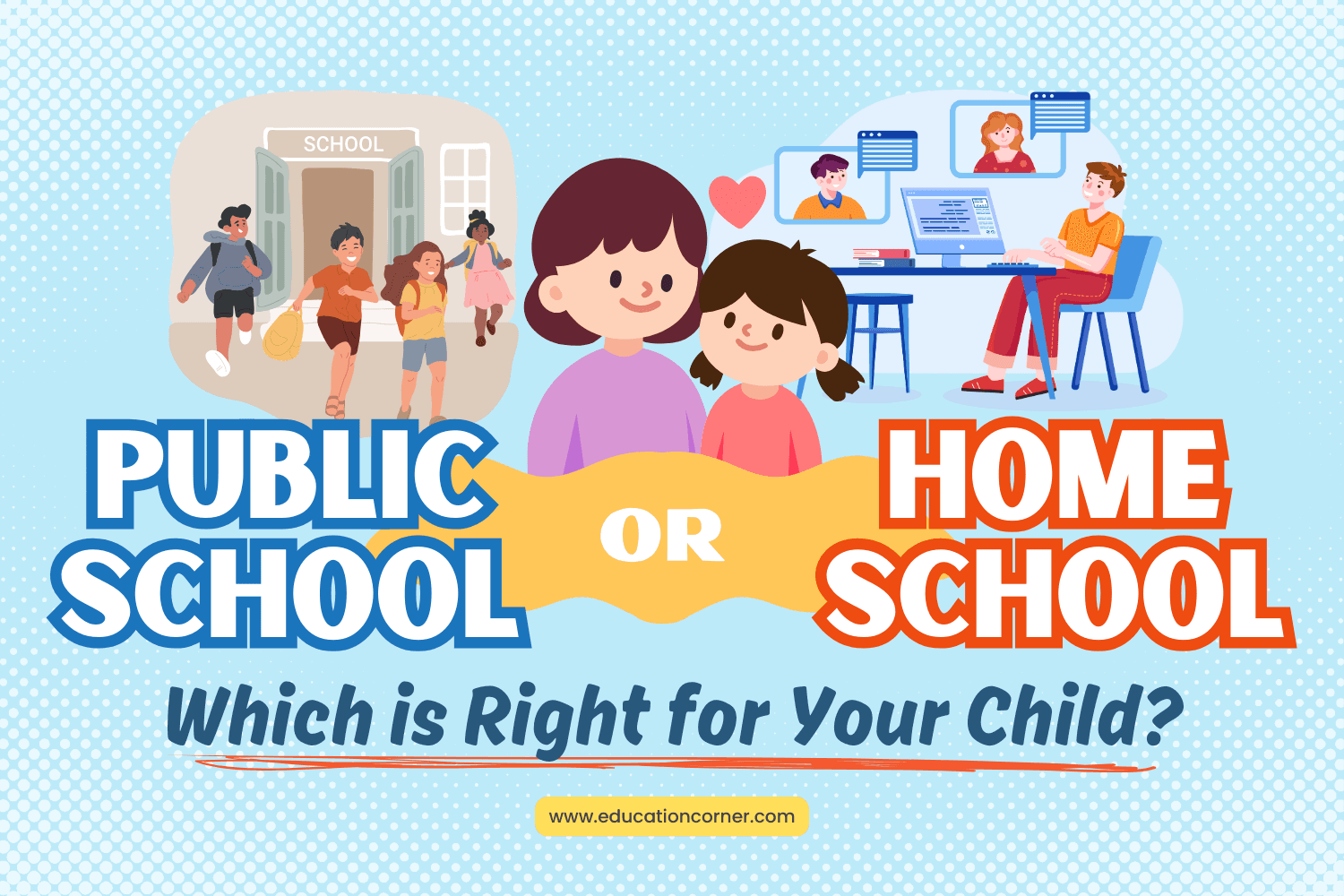Choosing between public school and homeschool is an important, yet difficult, decision, one that causes many parents a lot of anxiety. But not to worry: even though it may seem like the decision is terribly, disastrously important, and even though you may feel unprepared for either option, there’s actually less to worry about than you’d expect, particularly if your child is still young.
Serving You’re More Prepared Than You Think
Starting out with homeschooling when your child is still young is much less stressful than waiting through a few years of public schooling first. As the parent of a young child, you’re probably already spending a lot of time together playing outside, making art projects, reading books, watching educational videos, and so on.
The transition from these early childhood activities to basic reading, writing, and arithmetic can be very smooth and natural. Simply watch for signs that your child is ready to be guided toward these kinds of academics, and then provide that guidance (with or without materials such as textbooks or computer programs).
As you progress through basic concepts, you’ll learn more about how your child learns best, and you’ll also gain confidence in yourself as a teacher. Teaching, then, becomes a natural extension of parenting.
Serving Homeschooling Doesn’t Necessarily Take Up More of Your Time
Many parents may think that homeschooling requires practically 100% more time than sending their child to a public school, but this really isn’t the case. If you send your child to public school, remember, you’ll still be devoting hours each day to helping them with homework (even as early as 1st grade or kindergarten), driving them to and from school, attending parent-teacher conferences, chaperoning on field trips, going to school board meetings, etc. All of this can add up, and can even take more time than you would spend homeschooling.
Your child’s education will be a major investment of time for you, of course, regardless of which type of schooling you choose. But through homeschooling it is certainly possible to keep your child at grade level, or above, with the same amount of time you would spend on homework alone at a public school. What’s more, the time you do invest in homeschooling can be much more flexible than it would be with a public school education.
Special-Needs Students Can Still Receive the Services They Need
Choosing to homeschool your special-needs child doesn’t mean giving up the many state-sponsored services provided by your local school. The level of assistance you’ll get may vary depending on your state, and you may need to drive to the school to receive some of the services, but they’re still there for you to use.
Furthermore, homeschooling itself can eliminate the need for many of these services. Many special-needs students struggle in a public school environment for many reasons: an overload of sensory input (imagine 35 first-graders shouting), a lack of personalized attention (despite the teacher’s best efforts, perhaps), or a rigid schedule, among others.
At home, you’d be able to design a learning environment best suited to your child’s learning style, and you’d be able to accommodate your child’s unique needs much more easily.
Homeschooling Does Not Equal Isolation
The image of the homeschooled child as an awkward, unsocialized weirdo is a thing of the past. It’s a misconception. In fact, the majority of homeschooling families claim that they actually don’t spend an excessive amount of time at home at all, since they’re actively engaged in a vibrant homeschooling community and participating in community activities.
There’s a huge number of homeschool groups out there, and likely a few in your community. If you don’t identify with the groups in your area, you can easily form your own. Similarly, without much effort you can organize a field trip, play group, or sports day with some other homeschooling families in your town.
You’re Not Alone
Often, parents considering homeschooling are worried about having to teach everything by themselves. They may feel intimidated by the prep work, or may simply struggle in certain subjects and don’t want to try to teach them. Whatever the reasons, rest easy knowing that you don’t have to teach it all.
Practically every community offers a wealth of enrichment classes, afterschool programs, and community education that you can use to ease the teaching burden.
There’s also a wide range of resources, workshops, and classes designed specifically for homeschoolers. It may take a bit of time to find the right teachers, classes, or resources for you and your child, but it’s definitely possible, and it’s definitely worth the effort.
Your Choice Isn’t Set in Stone
Parents get anxious about this decision because it seems like it will determine the entirety of your child’s life for them. This just isn’t true, however. Whichever path you choose to take now, you can always change the road you’re on later.
If, for example, you decide to try homeschooling for a while but then decide it isn’t for you, you’ll still have all the options available to you that you had to start with. Public schools must provide all children with an appropriate education, regardless of where they received their schooling beforehand, it’s the law. Plus, there are plenty of examples of homeschooled children who have successfully and smoothly switched to public schools down the road.
The bottom line? Don’t be worried. If you think that homeschooling might be the right choice for you and your family, try it out! There’s really nothing to lose, and even if you change your mind later on, homeschooling can be a tremendously rewarding experience for a family.

